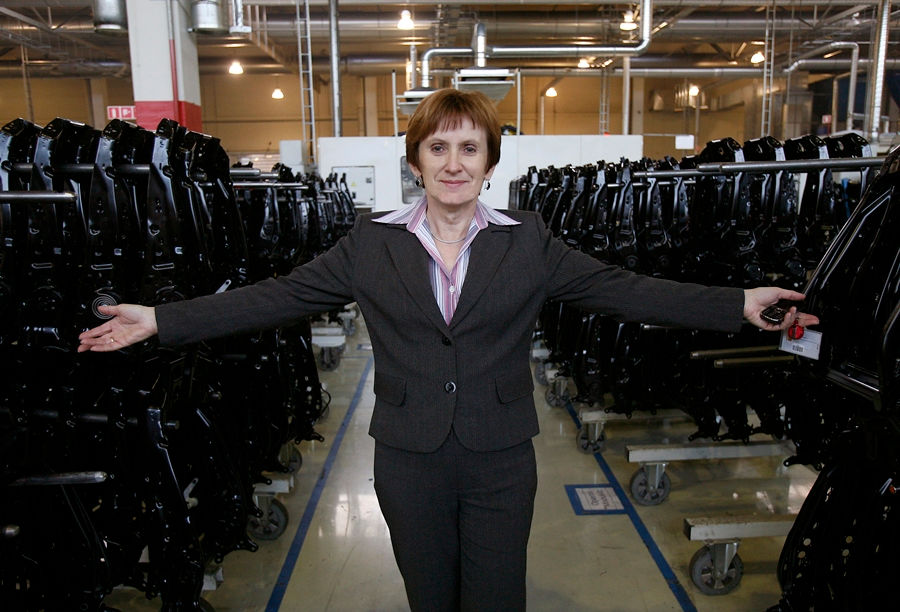The significant part of FI area functionality of SAP system are the settlements referring to the counterparties, intracompany settlements and settlements with the employees and authorities. The authorized person from the finance and accounting department is able to generate the payments directly in SAP system through files in the format imposed by the bank, loading them into the banking system. The bank transfers are performed on this basis.
In Poland, the generally accepted standard for domestic transfers is Elixir-O, and for foreign currency transfers – MT100. However, if the customer’s banking system requires a different data format, then the program generating the file in SAP is adjusted accordingly.
The file with the payments (called Data Medium Exchange – DME) is in fact a text file (flat) including the data that is essential for the bank transfer referring to the debited account, beneficiary, amount, currency, bank transfer date etc. The next step closing the payment process is loading of the bank statement and settlement of inflows and outflows to the SAP system.
In such a significantly simplified way, in the traditional model the payments are performed by means of a SAP system, both in the independent companies as well as in the corporate group companies. This process has been until recently performed in such a way in Sitech company, belonging to the Volkswagen corporate group.
It is quite a comfortable solution, to a large extent automating the processing of payments, enabling a quick and efficient communication between SAP system and any banking system.
However, the corporate groups such as Volkswagen have greater demands with regards to the increase of the effectiveness of cash management, both in the scope of the settlements with counterparties and intercompany sales. Deciding for the support of the business processes by means of SAP system, the company wants to take advantage of its capabilities to the greatest extent. The functionality of the in-house bank is one of the solutions that enables it.
In-House Cash (IHC) available in SAP system is one of the FSCM components (Financial Supply Chain Management).It enables to create own, in-house bank, by means of which the international payments of the commitments of all group companies for the benefit of the third parties, as well as mutual settlements between the group companies are performed.
Virtual banks for corporate groups
The works on the project of launching the central, virtual bank have been performed since the year 2005 in Volkswagen Group. Initially, the bank had been used by several companies. Successively, other companies such as Audi, Seat, Skoda had jointed the mutual platform. Other companies from Italy, Poland, Slovakia and Great Britain had been enclosed in the year 2011.
However, it is not one corporate group headquarters, but several regional service centres (e.g. Polish companies are processed by GTP-2 in VW Group Services seated in Belgium). The described solution is mainly applied in the Cash Management, Transaction Management and In-House Management modules.
The goal of the project is to increase the efficiency of cash management of the group entities though optimal usage of cash surpluses, integrated management of payment processes and automation of intracompany settlement, settlements resulting from the transactions on the cash market and settlements with the employees.
The Volkswagen Group decided to introduce the central system for the payment management gradually in all subsidiaries. In Sitech company that jointed GTP-2 at the end of 2011, the tax payments and payments for ZUS (social insurance) are excluded from the process, since the Polish legislator requires the taxpayer to pay the taxes directly – the payment made by another entity on behalf of the taxpayer does not result in the extinction of the tax obligation for this taxpayer.
The Framework
The payment centralization is performed in the virtual, in-house bank of the corporate group – in GTP system (Global Treasury Platform) based on the SAP IHC solution.
The primary assumption includes the automatic balancing/pooling of the bank balances of company operational accounts to the VGS account at the end of each working day, in accordance with the agreements concluded with the banks. The balances shall be credited or debited to IHC account (In-House Cash).
The communication between the local, VGS and external bank systems is based on the standard RFC protocol.The exchange of the information such as payments, bank statements and TR document between the systems is performed by means of IDocs (Intermediate documents, a standard SAP format) through ALE connection.
The concept of the solution was prepared by the Sitech working team, while BCC (now All for One Poland) company provided the technical support, entered the customizing and development changes in the system, provided the support during the test phase as well as during and after going live.
IDoc and payment types
The communication between the local SAP system and VGS system is performed by means of IDocs. The three types of standard IDocs were used:
- PAYEXT – payment orders,
- FINSTA – bank statements,
- FIDCC2 – financial transaction data (FI/TM postings).
Transfer from text files to IDocs is connected with adding of other (standard) program for generation of DME, and the IDoc structure itself has to be properly fed with data and transferred to VGS. It was connected with launching of several standard extensions.
As a result of the organization changes, four types of payments were distinguished:
- Internal payment (in Global Treasury Platform):the payment for the benefit of companies connected to GTP,
- Corporate group payment:payment for the benefit of companies belonging to VW corporate group (companies outside the GTP),
- Domestic payment:orders in Zlotys and in the foreign currency sent to the bank in the country,
- International payment:orders sent to banks abroad.
However, it should be noted that the division of the payments into the domestic and international is as clear as in the previously valid situation. The point of view of VGS should also be considered. So the payment in EUR for the benefit of the German company should be treated as domestic payment, only made in Germany, since VGS has its bank account in this country. It is an essential information because the time of bank transfer execution as well as its cost depend on this division.
Depending on the payment type, different bank data had to be entered to IDoc, as a result of which it was necessary to improve some counterparty master data in the scope of the bank account numbers. Only valid data results in the actual payment.
The generation of the payment media causes its automatic transfer to VGS machine. The user does not have to log on the bank system and load the files, if the generated data (especially bank details) is valid. The user does not have to make any other effort with regards to the payment.
Due to the lack of the double approval of the payment in the system, which usually takes place in the bank system, the Z-solution for the payment approval has been prepared in order to increase the security.

B.Dominik, Finance Specialist, Sitech
Procedures and security
Additionally, another SAP functionality has been launched – Free Form payment for HR, in which any amount may be specified, since it does not result from the posted documents (advance payment request) and posted to the GL accounts that in turn allows for the personal payments without information visible on FI side, for whom the transfer has been generated. The IDocs are generated in this way and also transferred to VGS. This type of payment is mainly used for the execution of the payments for the employees that cannot be generated automatically.
The generation of the payments by the corporate group companies is connected with keeping a certain type of procedure. Firstly, the payment runs should be prepared early enough, so until 1 p.m. all IDocs with payments are already in VGS system (the time of IDoc inflow to the platform is taken into consideration!). After this time, the physical execution of the transfers by VGS is performed and further by the external bank.
Secondly, as VGS system is in the Belgian corporate group company, this procedure has to take into consideration the public holidays and days off in this country that could delay the execution of the payment.If keeping of the deadline for the bank transfers is threatened, then the given company shall reconcile with VGS the proceedings (the availability of the staff during the public holidays)
Another element increasing the security of data transfer in IDocs was the creation of an encrypted VPN channel for the communication between SAP system in Sitech and VGS system of the corporate group.
Electronic statements
The electronic bank statements constitute another functionality covered by GTP project. The statements from the local bank accounts are transferred automatically to VGS, and in the next step are transferred from VGS automatically without changes to the local SAP systems by means of FINSTA IDocs. The statements are loaded automatically, but the local users are responsible for making the posting.
Apart from the external statements, the corporate group companies receive the internal statements for the IHC main account on the basis of the line items in FINSTA IDoc form. For subaccounts referring to the personal payments, the detailed statements are not provided (protected data), these postings are visible in one amount as cash concentration from P subaccount (personal payments) to A main account. The greatest possible automation of bank statements has been prepared, so the interference of Sitech employee is only possible in case of the lack of direct assignment to the item, e.g. in case of cash inflow, in case of returns.Also FIDCC2 statements are posted automatically and do not require any action.
The new processing of the payment
At the moment, all payments for the vendors and between the companies of the group are performed by means of the in-house bank, which enables the elimination of the accounts for the processing of vendors in other banks.The only payments that are made by Sitech directly through bank system are the tax payment transfers and payments for ZUS (social insurance), where the law requires the taxpayer to make direct payments.
From the point of view of the end user, in principle nothing changes with regards to the steps performed in SAP system. The payment parameters and proposal, and at the end the payment itself with the generation of the media are to be preparedThe payment proposal has to be approved by the third party (parties). Since as a standard such an approval is performed already on the side of the banking system, the additional steps are to be performed, ensuring the same functionality on the side of SAP system.
While generating the media, the user has to remember that it is automatically sent to VGS system, and its withdrawal is a little bit complicated (an order – notified in VGS – signed by authorized persons is required). A list of payments from SAP is sent to VGS twice a week at average – as part of the corporate group VGS also uses SAP system, the payment list does not have to be transferred in a form of a flat file, but by means of IDoc. Only collectively, the packages with the payments for the bank processing the corporate group (Citibank) are created from all bank transfers.
The payments are executed in accordance with the due date that is specified in the file and the execution of the payment order causes the writing off the funds for the day of execution. The account balances are daily pooled to the VGS main account (also from the external accounts). At the end of each month, the company receives a list of funds that were not placed on the term deposits along with the accrued interest calculated as for the overnight deposits.
In turn, the intracompany payments are the factual transfer postings between the General Ledger accounts. In this way, the virtual flow of the cash is performed.
The transaction currency is PLN. All currency inflows are translated at the exchange rate of the European Central Bank at the day of pooling. Sitech performs some payments in Polish Zloty. If the payment is performed in the foreign exchange rate, the translation is performed at the daily rate of ECB. Thus, the translation of the foreign currency performed on one day does not cause the rise of the exchange rate differences.
Also the remuneration transfers
Apart from the settlements with the counterparties by means of GTP, all payroll transfers are performed:remunerations, mandate contracts, seizures by a bailiff.
As part of the project, it was necessary to adjust the payment methods in SAP to GTP requirements.The account from which the payment of the remuneration, judicial seizures and seizures by bailiff are performed has also been changed in the configuration.
Additionally, the capability of defining the bank transfer date (up to 5 days) has been provided. Therefore, the payroll accounting in the system and issuing the transfer order do not have to be closely linked with the date of payments for the employees.
Apart from the change of the bank processing the employee transfers, also a new procedure for the approval of the bank transfers has been introduced.In accordance with the safety requirements and best practices (among others SOX act), a principle of a control in several steps has been adopted. First of all, the person preparing the payroll and the transfer order is not authorized now to approve it in the system.It is necessary to engage another authorized participant of the process. Such at least two-stage control improves safety and is consistent with the policy of VW corporate group.
The project works were not labour-intensive for persons responsible for the payroll in SItech despite a large number of employees – about1600 persons. After launching of the new banking solution, the operation of payroll department is similar to the previous situation. The payroll accounting is executed in the same way as previously. Only preparing the package with transfers, the employee instead of the text file generates IDoc and enters the transfer date (not earlier than the next day, not later than in 5 days) that was not done before.
In accordance with the adopted procedure, the transfer is approved by the authorized employee.
A new feature is the capability of a “preview” of approved transfers in VGS banking system, which is an additional control of payroll correctness. In VGS banking system, in case of the personal payment (does not refer to FI), it is possible to remove the payments. This feature is available only for the authorized HR employees.

Joanna Bachorska, Finance Department Manager, Sitech
We make money through the economy of scale
As the corporate group developed, Volkswagen struggled with the lack of transparency in the account structure in the group, with the ineffective allocation of the funds, the uncontrolled usage of the loans by the subsidiaries and with the overrating of the level of financial costs.In order to prevent this, the GTP system solution (Global Treasury Platform) on the basis of SAP system had been developed. Its task was to centralize the functions of treasury and optimization of the processes in particular companies. Thanks to the usage of cash pooling, Volkswagen is able to balance the cash surpluses and shortages as part of the group and to obtain the complete information about the cash balance, value of used loans and their availability.
The works on the implementation of GTP solution in Sitech had begun over a year before going live. Due to the complexity of this issue, it was necessary to engage in the implementation process not only the employees of the treasury department, but also the accounting and tax team, employees of HR department, tax advisors, IT Specialists and implementation company – in our case BCC (now All for One Poland) – establishing a team, appointing tasks and sharing the responsibility.
As the Polish legislation still does not provide a clear definition of cash pooling, most of the time was consumed by the classification of the solution and particular financial operations with regards to the tax and balance sheet law, including the obtaining of the individual interpretation of the tax authority.The implementation of cash pooling solution was connected with ERP system modifications.It was also necessary to change the scheme of bank transaction posting in the General Ledger.
But the positive effects of applying cash pooling may be seen within several days after launching of the functionality. On the request of the company, the bank is the executor of the cash balance transfer operation, so the process is automatic and does not require the engagement and activities on our side.Most of the operations connected with the payment transactions is now posted automatically, along with the loading of statements and postings to the General Ledger account.
Thanks to the restriction of the number of bank accounts, their structure is transparent, and taking over by VGS of bank functions has restricted the necessity to cooperate with several external banks. Taking advantage of the economy of scale that is provided by Volkswagen, the company may obtain greater financial advantages, e.g. from deposing free funds. The additional advantage of the implementation of this solution was the possibility of optimizing the internal accounting, financial and organizational processes.
Joanna Bachorska, Finance Department Manager, Sitech
Summary
While discussing the implementation of GTP platform, it is necessary to consider the following issues:
- Gathering of the financial resources of many companies causes that VGS has a powerful bargaining chip in negotiations with banks. The measurable effects of this are visible on the monthly statements of interest earned on the overnight deposits and long-term deposits.
- Since VGS has accounts in many European banks, the international bank transfers are treated most frequently as domestic, and this in turn decreases the costs of processing.
- The program for the processing of IHC has several functions for planning. It is possible to enter the sales planned for particular days. It is also possible to take into consideration on a current basis the information existing in the system referring to the outgoing and incoming deposits.
- The planning enforced by GTP is beneficial above all for Sitech Sp. z o.o., since the company itself has at the moment a very good tool for monitoring and planning of the financial resources.
- The method for posting of the personal payments (for FI employees, only one amount of pooling from the given day is visible) enforces the regular reconciliation of the liabilities.
- The taking over of the bank functions by the VGS causes the centralization of bank details.
- GTP platform has simplified the payments between GTP-2 companies and other corporate group
The implementation of the platform – as it is clearly visible above – provides the measurable benefits not only for the corporate group, but also for Sitech company.


